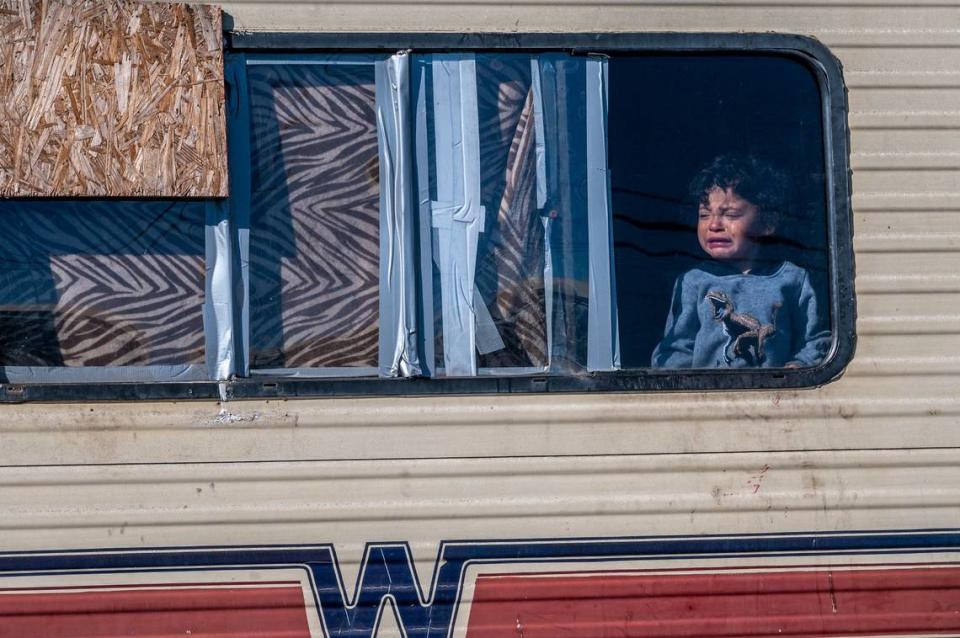Too many children are among California’s uncounted homeless. They need help too | Opinion
In the cold of winter, California cities like Sacramento and Los Angeles conduct a Point-in-Time (PIT) count to estimate the number of people experiencing homelessness in the city. Despite the efforts of local leaders and the willingness of the public to fund efforts to reduce homelessness, too many Californians are without homes. And too many will be children.
Homelessness is part of every-day life in our our public schools. Homeless children are largely invisible, and for that reason, the accuracy of current data is highly questionable. According to official estimates, 246,480 students in California lacked a fixed and adequate nighttime residence in 2022-2023. There is good reason to believe the problem is far worse.
The overwhelming majority of children under 18 who experience homelessness do not live on streets or under bridges. That’s a good thing, but unfortunately, in this case, out of sight also means out of mind.
Opinion
According to the National Center for Homeless Education, approximately 85% of students who qualified for homeless support services during the 2019-2020 school year lived in doubled-up situations—sharing crowded housing with family and friends—while another 5.2% lived in hotels or motels. It is estimated that 90% of homeless youth will not be reflected in the PIT count, nor any data collected by the U.S. Department of Housing and Urban Development (HUD). This is a major concern because the unofficial homeless are not eligible to receive federal housing resources and support.
Fortunately, federal legislation under the McKinney-Vento Act (MKV) protects the rights of students experiencing homelessness to attend public schools. Research shows that students experiencing housing insecurity have higher rates of chronic absenteeism, lower achievement, higher rates of suspension, and are more likely to drop out of school. The education services provided by MKV help to counter these trends.
However, it’s not good enough. Inadequate federal support means individual schools and districts play a disproportionate role in serving homeless students and their families. California only receives $14 million from the federal government to fund homeless students statewide—a drop in the bucket compared to actual funding needs. A UCLA study found these funds reach just 36% of students experiencing homelessness.
In 2022, California allocated $98 million in federal grants from the American Rescue Plan (ARP) program to school districts and counties to support homeless students. Educators and administrators embraced this opportunity to improve systems and document best practices.
However, federal ARP funds will expire on September 30. If state leaders fail to expand or sustain these programs, California’s schools will have less than $50 in dedicated funding for each homeless student.
To avoid disaster, state leaders must devise a new strategy. We strongly recommend that they actively engage young people who are experiencing homelessness to solicit their ideas on how to transform current systems. We know from prior experience that policy innovations aimed at solving complex problems work best when they involve those closest to the problem itself—in this case, students personally facing housing insecurity.
Such an inclusive approach is sorely needed to address the state’s youth homelessness problem. Youth understand where support is needed and how it can be provided without stigmatizing those who need help. They can also provide another layer of accountability to policymakers and ensure that public funds are not wasted.
This year we have an historic opportunity to do more than just count the homeless. We can engage homeless youth in a process aimed at building sustainable support systems and show them in the process that every young person really counts.
Deborah L. McKoy is the Executive Director and Founder of the University of California at Berkeley’s Center for Cities and Schools and a lecturer in the Department of City and Regional Planning and the Graduate School of Education. Pedro A. Noguera is the Emery Stoops and Joyce King Stoops Dean of the Rossier School of Education at the University of Southern Califiornia.




